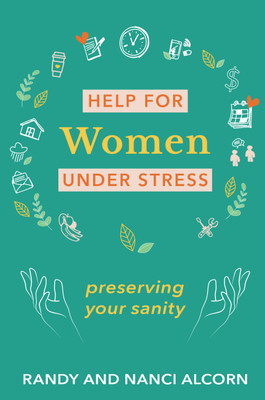Forgiveness is the ultimate pain reliever. In forgiving others we unclench our fists and get off the offensive.
Jesus taught that forgiving others is part and parcel of our own forgiveness:
And forgive us our debts, as we also have forgiven our debtors.… For if you forgive others their trespasses, your heavenly Father will also forgive you, but if you do not forgive others their trespasses, neither will your Father forgive your trespasses.… (Matthew 6:12, 14–15, ESV)Then Peter came up and said to him, “Lord, how often shall my brother sin against me, and I forgive him? Up to seven times?” Jesus said to him, “I do not say to you, up to seven times, but up to seventy times seven.” (Matthew 18:21–22, NASB)
Christ goes on to tell the story of a servant who owes his master a huge amount, yet whose master forgives him for it. But that servant refuses to forgive the debt of a fellow servant who owes him a much smaller amount. When the King discovers this he says,
“You wicked servant! I forgave you all that debt because you pleaded with me. And should not you have had mercy on your fellow servant, as I had mercy on you?” And in anger his master delivered him to the jailers, until he should pay all his debt. So also my heavenly Father will do to every one of you, if you do not forgive your brother from your heart. (Matthew 18:32–35, ESV)
This forceful language proves that God takes our failure to forgive seriously!
Forgiveness is clearly a matter of choice, not feelings. Yes, we may remember the facts of someone’s offense, but we must not allow ourselves to dwell on them. We cannot change the past but we can and must change our present attitude toward the past. It is possible to “forgive and forget” if we truly do forgive. But we will never forget what we choose to brood over. And if we allow ourselves to brood, we have not truly forgiven.
Time does not heal all wounds. Time alone will only allow the cancer of bitterness to grow. When we refuse to cater to our emotions and refuse to indulge our fatal tendency toward bitterness, only then will time bring healing.
“How will I know if I really haven’t forgiven someone?” Do you often think about his offense? Do you throw his sin back in his face from time to time? Do you take opportunities to bring up his offense to others? Do you give him darting glances, or a cold shoulder? Then you haven’t forgiven him. And until you do, you won’t be free. It is the unforgiving person—not the unforgiven one—who is truly in bondage. An unforgiving person is invariably a stress-filled person. In your desire to punish someone else, you punish yourself. As the saying goes, “Resentment is like taking poison and waiting for the other person to die.”
Forgiveness is not unrealistic. The woman whose husband continues in unrepentant adultery shouldn’t pretend nothing is going on. She must exercise tough love and take corrective steps that may include separating herself and the children from him. Certainly she must let him see that continued sin of this sort is unacceptable and is bringing great harm to her and the children, as well as to him. She should forgive him “seventy times seven,” but that does not mean that when he continually rips apart the very fabric of their marriage she will be a party to his sin by keeping up the front of an unbroken home.
It does mean that she will pray for his repentance and offer restoration if it comes. It also means that—realizing she cannot control him and he will answer not to her but to God—she will surrender to God her claim on his life. She will refuse to rehearse and dwell on his abuses. Even if he never repents and she never lives with him again, she is called upon to offer him forgiveness.
There is no sin Christ didn’t die for, no sin He cannot forgive, and therefore no sin that we, in His strength, cannot forgive.
We must bury the sins of others as God has buried our own: “You will again have compassion on us; you will tread our sins underfoot and hurl all our iniquities into the depths of the sea” (Micah 7:19). And we must commit ourselves never to dig them back up and chew on them, wave them in front of others as gossip, or use them as weapons of revenge or tools to barter and manipulate. If we do, we show we are preoccupied with sin instead of the Savior, and give more credit to its power than to His.
Paul said, “But one thing I do: Forgetting what is behind and straining toward what is ahead, I press on toward the goal to win the prize for which God has called me heavenward in Christ Jesus” (Philippians 3:13–14). He knew that the only experience comparable to the freedom of being forgiven is the freedom of forgiving.
photo credit: bayu_ir via sxc.hu





